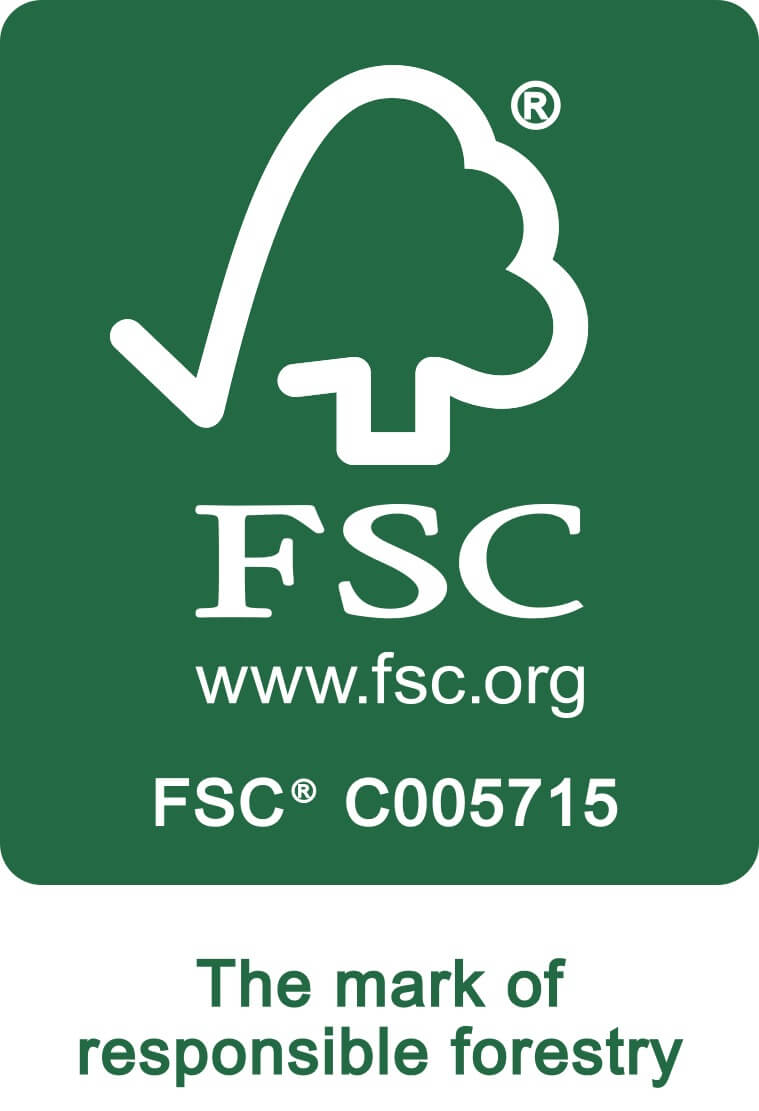Forest Stewardship Council (FSC®) is an independent, non-governmental, not for profit organization established to promote the responsible management of the world’s forests. The FSC® was established in 1993 in Canada by representatives of the timber industry and environment and human rights organisations concerned about the increasing rate of deforestation, environmental damage and social exclusion, who felt the need to establish an international certification scheme for forest management. FSC®’s idea of responsible forestry is put to practice trough forest certification which is based on the FSC®’s principles and criteria of forest management, which have been developed in cooperation between FSC® members and various advocacy groups.
FSC®
An FSC® certified forest manager operates in an environmentally appropriate, socially beneficial and economically viable way. Environmentally appropriate forest management ensures that the forest management activities maintain the forest’s biodiversity, productivity, and ecological processes. Socially beneficial forest management helps both local people and society at large to enjoy its long-term benefits. Economically viable forest management means that forest operations are structured and managed so as to be sufficiently profitable, without generating financial profit at the expense of the forest resource, the ecosystem, or affected communities. An FSC® certificate helps both companies and consumers make informed choices when purchasing timber, wood products and other products originated from forests, and to thereby positively influence the state of our forests.






